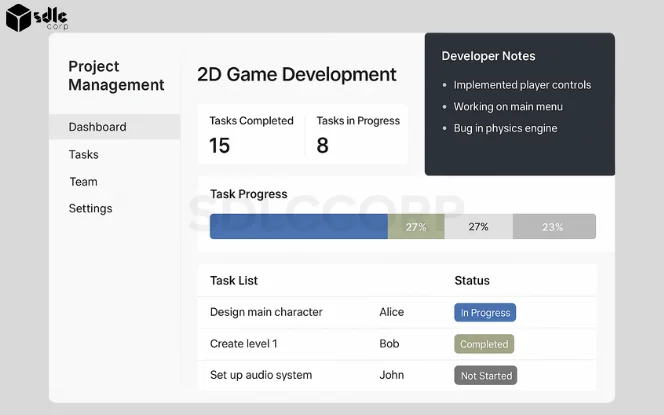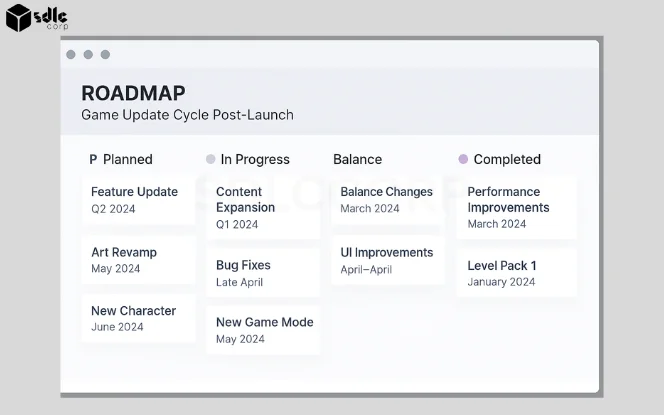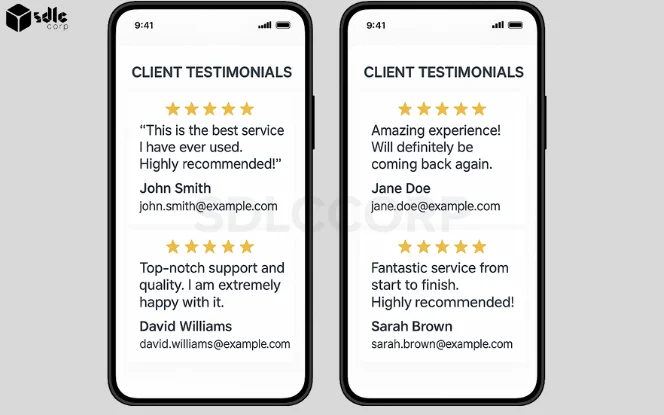Choosing the best indie game development partner can be the most critical decision in turning your game idea into a successful product. Whether you’re an indie studio, a solo developer, or a startup, finding a partner who aligns with your vision, technical needs, and budget is essential. This blog outlines actionable tips to help you choose the right game development firm to bring your creative vision to life.
Assess Their Experience in Indie Game Development

- Check Indie Game Portfolio: Verify whether the Game development company has completed similar indie game titles.
- Review Platform Expertise: Ensure they have built games for your target platform.
- Industry Insight: Assess their understanding of indie-specific challenges and solutions.
- Niche Focus: Look for studios specializing in your specific genre (platformer, puzzle, horror, etc.).
- Prototype Experience: Ask if they can build a quick prototype to test ideas early.
Explore more How Indie Developers Are Transforming The Gaming Industry
Analyze Their Technical Expertise

- Game Engine Proficiency: Look for hands-on expertise with Unity, Unreal, or Godot.
- Cross-Platform Skills: Confirm their ability to deploy games across PC, mobile, and console.
- Toolchain Knowledge: Ask about automation, analytics, and optimization tools.
- Performance Optimization: Confirm they can optimize for FPS, load times, and memory.
- Third-party Integrations: Check experience with APIs like payment systems or ad networks.
Explore more Top Game Development Tools for Aspiring Indie Developers
Evaluate Communication and Transparency

- Clear Communication Channels: Use Slack, Trello, Jira, or similar tools.
- Regular Sprint Updates: Weekly reports and milestone reviews build trust.
- Transparent Costing: Detailed quotations and milestone-based payments.
- Time Zone Compatibility: Ensure overlapping working hours for daily communication.
- Single Point of Contact (SPOC): Ask for a dedicated project manager.
Explore more Cost to Develop a Game Like Undertale
Consider Their Creative Collaboration

- Vision Alignment: Check if the team supports your creative ideas.
- Innovative Input: Choose a team that brings original gameplay or design suggestions.
- Art Flexibility: Evaluate their ability to adapt to your preferred style or genre.
- Narrative Collaboration: See if they offer narrative writing or script editing.
- UX Testing Support: Check if they run internal playtesting and share insights.
Explore more The Rise of Indie Games on Consoles: A New Wave of Creativity
Check Budget Flexibility and Cost Transparency
| Tier | Basic MVP | Mid-Level | Full-Scale |
|---|---|---|---|
| Cost | $20K – $30K | $35K – $50K | $60K-$100K+ |
| Timeline | 4–6 weeks | 10–12 weeks | 20–24 weeks |
| Core Considerations | Freelancer or small studio with limited scope | Experienced indie firm with defined process | Full-service dev company with dedicated teams |
| Communication | Basic communication (email or chat only) | Slack, Trello/Jira, weekly updates | Agile, dedicated PM, structured reporting |
| Creative Involvement | Minimal creative input; client-led | Some creative collaboration, visual concept mockups | Collaborative design, narrative support, UX testing |
| Design & UI Support | Minimal layout guidance | UI wireframes and character concept art | Complete UI/UX design system + visual branding |
| Tool Stack Used | Unity, email, Google Docs | Unity/Godot, Trello, Figma, Git | Unity/Unreal, Jira, Figma, GitHub CI/CD |
| Documentation & Planning | Basic task notes | Game Design Document (GDD) | GDD, Technical Docs, roadmap planning |
| Team Composition | Solo developer or freelancer | Small dedicated team (2–5 people) | Full-stack team (designers, devs, QA, PM) |
| Testing & QA | Basic device testing only | Manual testing + test reports | Automated & manual testing on multiple devices |
| Support Duration | Bug fixes for 15–30 days | Support for up to 60 days | 3–6 months maintenance and updates |
- MVP-Friendly Pricing: Opt for firms offering Minimum Viable Product options.
- Detailed Cost Breakdown: Get clarity on design, development, testing, and post-launch costs.
- Budget Adaptability: Prefer teams that can scale scope based on your budget.
- Hidden Costs Disclosure: Ask about post-deployment costs like hosting or updates.
- Flexible Engagement Models: Check if they offer fixed-cost, time-based, or dedicated resource models.
Explore more Unreal Engine for Indie Game Developers: Advantages and Tips
Review Post-Launch Support & Scalability

- Ongoing Maintenance: Ensure bug fixes and support after launch.
- Content Expansion: Ask if they support DLCs or future content updates.
- User Feedback Loops: Incorporate real-time feedback into future releases.
- Marketing Support: Ask if they provide app store optimization or launch strategy.
- Analytics Integration: Ensure real-time tracking tools (Firebase, Unity Analytics) are implemented.
Explore more Best Indie Games Developed with Unreal Engine
Read Reviews and Ask for References

- Check Ratings and Testimonials: Use Clutch, GoodFirms, or Google Reviews.
- Ask for Case Studies: Read detailed project stories or user success examples.
- Client References: Talk directly to past clients for credibility.
- Verify Deliverables: Ask previous clients about delivery timeline adherence.
- Check Repeat Clients: A firm with returning clients often indicates reliability.
Evaluate Workflow and Methodology

- Agile Process: Check for iterative sprints and milestone planning.
- Transparent Timelines: Ensure detailed delivery plans with timeline visuals.
- Collaboration Tools: Confirm their use of task-tracking software and cloud tools.
- DevOps Practices: Ask about CI/CD pipelines and test automation.
- Retrospective Reviews: Ensure they evaluate previous sprint performance for optimization.
Explore more Mastering 2D Game Development: Techniques and Strategies
Ensure Legal and IP Protection
- Sign NDAs: Always insist on confidentiality agreements.
- IP Ownership: Ensure you retain full ownership of assets and code.
- Defined Contracts: Request a well-documented SoW (Scope of Work) and agreement.
- Compliance & Standards: Ensure the team adheres to GDPR and industry standards.
- Backup and Recovery Plan: Ask how they manage data loss or project backup.
Explore more How to Make a Game Like Super Smash Bros Using Unity
Technology Stack & Tools Used

- Game Engines: Unity, Unreal, and Godot are top picks.
- Design Tools: Aseprite, Photoshop, and Figma help craft art and UI.
- Sound Tools: FMOD and Audacity are great for music and FX.
- Version Control: Git, GitHub, or Bitbucket ensure team collaboration.
- Bug Tracking Tools: Ask what tools (like BugHerd or Mantis) are used for QA.
- Documentation Practices: Ensure they provide thorough technical documentation post-launch.
Freelancer vs Game Development Firm vs In-House Team
| Feature | Freelancer | Game Dev Firm | In-House Team |
|---|---|---|---|
| Cost | Low | Medium | High |
| Availability | May vary | Reliable team | Always available |
| Skill Set | Specialized | Full-stack | Depends on hires |
| Project Control | High | Shared | Complete |
| Risk | High | Moderate | Low |
| Security & NDA Risk | High | Low | Very Low |
| Team Scalability | Low | High | Medium |
Conclusion
Finding the best indie game development partner is more than checking off a list it’s about building a relationship based on trust, vision, and technical expertise. By using the tips above, you can ensure your game development journey is smooth, collaborative, and ultimately successful. Ready to build your dream game with a trusted partner?
Hire Game Developers from SDLC Corp or Contact Us today for a free consultation and personalized quote.






